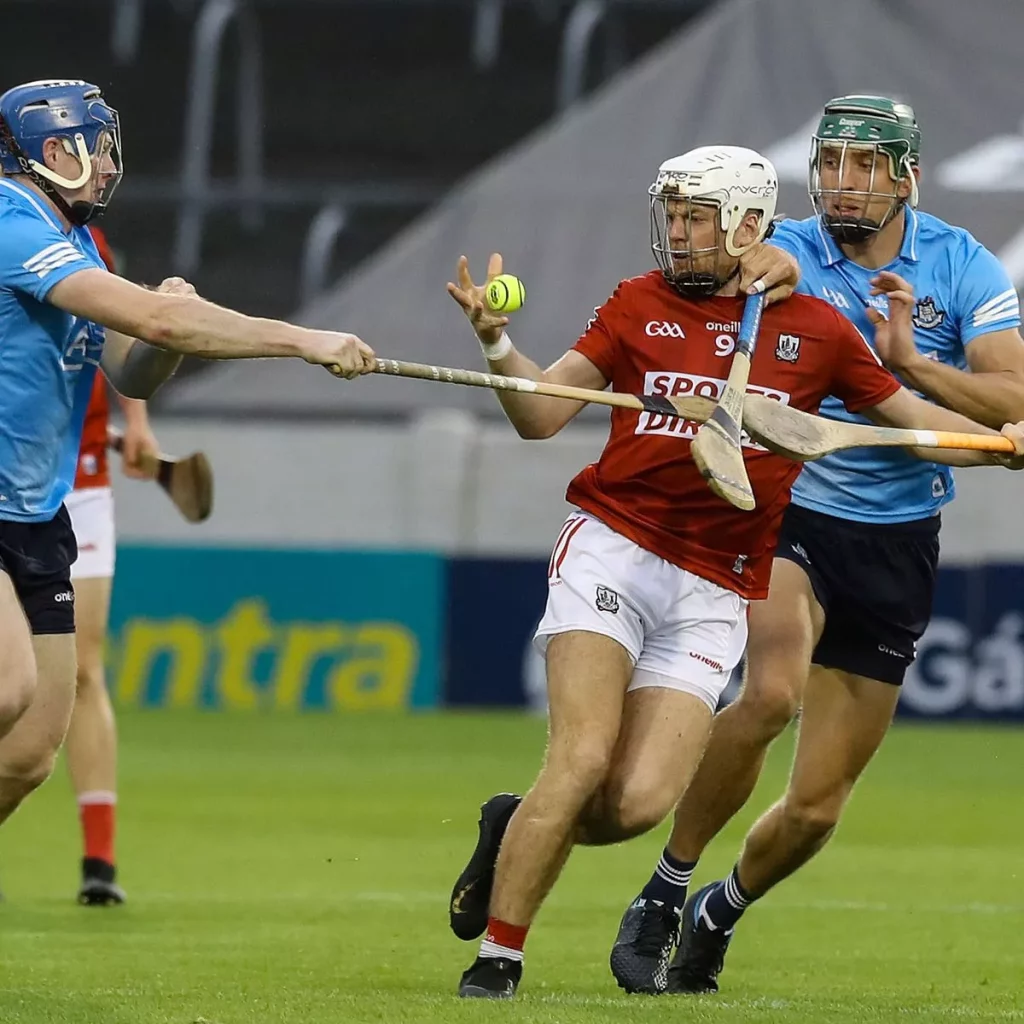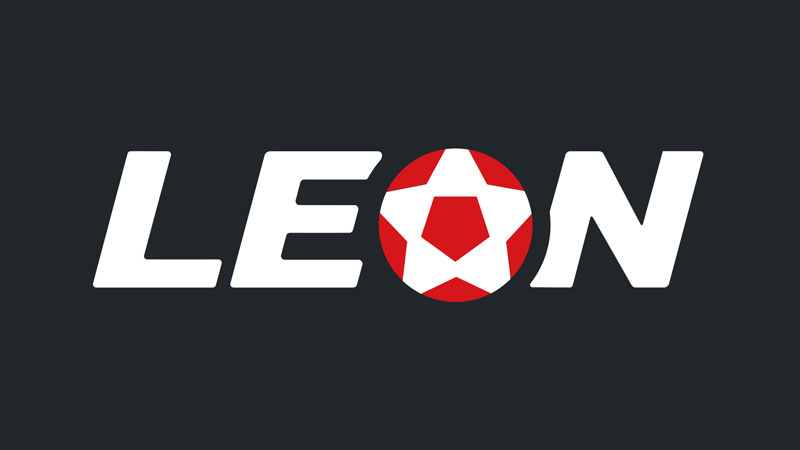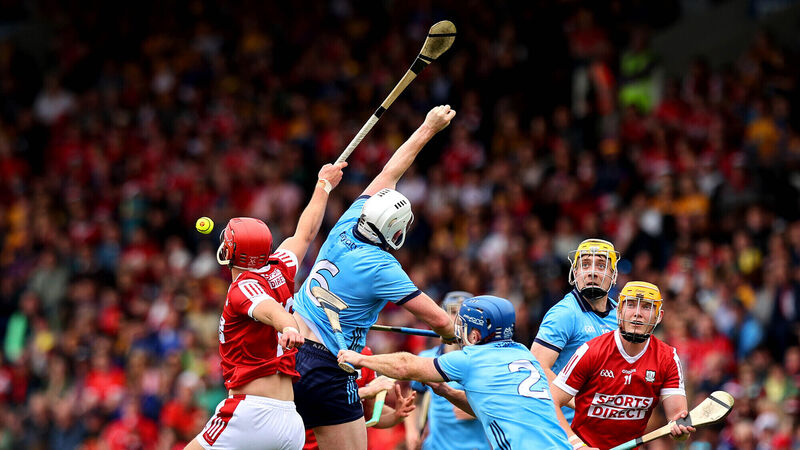The GAA is anticipating one of the largest hurling attendances outside of an All-Ireland final in recent years, with the Dublin versus Cork semi-final showdown at Croke Park on course to break the 70,000 barrier. Ticket sales have surged over the past week as excitement builds for what many are calling the most intriguing hurling semi-final pairing in several seasons, with both counties desperate to end their respective waits for All-Ireland glory.
Table of Contents
The clash, scheduled for 3:30pm on Sunday, has generated unprecedented interest from both traditional supporters and neutral fans alike. Irish bookmakers have reported extraordinary betting activity surrounding the fixture, with Leonbet confirming it’s on track to be their most wagered-on hurling match outside of an All-Ireland final in the company’s history. GAA officials are delighted with the response, which signals a welcome financial boost and showcases hurling’s continued appeal at the elite level.
“We’ve been watching the ticket sales closely, and the trajectory suggests we’ll have around 70,000 at Croke Park on Sunday,” said GAA Commercial Director Peter McKenna. “It’s a fantastic endorsement of both counties’ journeys this year and the excitement surrounding this particular pairing. We’re encouraging any fans who haven’t secured tickets yet to do so quickly, as we’re expecting a near-capacity crowd.”
- Sign up bonusWelcome bonus: up to €300LeonBetJoin Now
- Sign up bonusGet €50 In Free BetsBetfairJoin Now
- Sign up bonuswe’ll refund 50% of your lossesQuinnBetJoin Now
- Sign up bonusGet up to 50% bonus + 50 FSbCasinoJoin Now
- Sign up bonusWelcome bonus: 100% deposit bonus up to €50UnibetJoin Now
- Sign up bonusMONEY BACK UP TO €10LiveScore BetJoin Now
- Sign up bonus€1,000.00 + 150 Free SpinsBoo CasinoJoin Now
- Sign up bonus€1500 + 150 FSGates777Join Now
- Sign up bonusBet €10 get €40 in Free BetsBoyleSportsJoin Now
- Sign up bonusWelcome bonus: up to €50 in Free BetsMrGreenJoin Now
- Sign up bonusGet up to €30 in Free BetsBetwayJoin Now
- Sign up bonus€1000 for free + 100 FSLuckyDays CasinoJoin Now
- Sign up bonusWelcome bonus: €1.500 + 270 FSIce CasinoJoin Now
- Sign up bonus100% up to €/$100 + 120 FSIvibetJoin Now
- Sign up bonusBet 10€, Get 50€BetfredJoin Now
- Sign up bonus€30 FREE BETPaddy PowerJoin Now
- Sign up bonusGet 150 Chances Today for only $10Cosmo CasinoJoin Now
- Sign up bonusUp to €20 in free betsLadbrokesJoin Now
Historic rivalry renewed on biggest stage
While Dublin and Cork wouldn’t traditionally be considered hurling’s most storied rivalry, their rare championship meetings have produced some memorable encounters. This semi-final marks their first championship clash since 2013, when Dublin claimed a famous victory en route to their first Leinster title in 52 years under Anthony Daly.
For many hurling historians, however, the fixture evokes memories of the 1952 All-Ireland final, when Cork defeated Dublin by a single point in what was Dublin’s last appearance in a hurling final. That 72-year gap explains much of the capital’s excitement, as Micheál Donoghue’s men stand just 70 minutes away from a historic final appearance.
Cork’s own 18-year wait for All-Ireland success has their supporters traveling in unprecedented numbers, with early estimates suggesting over 30,000 Rebels will make the journey from the south. Special train services have been arranged from Kent Station, while Cork County Board has organized dozens of supporter buses from all corners of the county.
“The response from our supporters has been phenomenal,” said Cork County Board Chairperson Pat Horgan. “Our allocation was snapped up almost immediately, and we’ve been working with the GAA to secure additional tickets. There’s a genuine belief that this team under Pat Ryan has what it takes to bridge that long gap back to 2005.”
Dublin’s hurling renaissance has similarly captured the imagination in the capital, with the county board reporting unprecedented demand from clubs across the city and county. The sight of Dublin’s distinctive sky blue jerseys dominating Hill 16 for a hurling match will be one of the day’s most striking images.
Dublin’s unexpected journey to the semi-final
Few would have predicted Dublin’s presence at this stage of the championship when the season began back in April. Having finished third in Division 1B of the National League, expectations were modest heading into the Leinster championship, with Kilkenny, Galway and Wexford all rated as stronger contenders for provincial honors.
However, a dramatic one-point victory over Wexford in their opening match set the tone for their campaign. Though they suffered a narrow defeat to Kilkenny, subsequent victories over Antrim, Carlow and Galway secured their progression to the knockout stages, where they stunned Waterford in the preliminary quarter-final.
Their quarter-final triumph over Leinster champions Kilkenny represented their finest championship performance in a decade, with veteran forward Danny Sutcliffe rolling back the years with a virtuoso display, contributing 1-3 from play in the 1-22 to 0-23 victory.
“This group has been building quietly for a couple of years,” explained Dublin manager Micheál Donoghue. “The win over Kilkenny was hugely significant for their confidence, but it hasn’t surprised anyone within our setup. These lads have put in phenomenal work and they believe they belong at this level.”
Dublin’s progress has been built on defensive solidity, with their full-back line of Paddy Smyth, Eoghan O’Donnell and Cian O’Callaghan forming one of the championship’s most effective units. Meanwhile, the emergence of young talents like Donal Burke and Ronan Hayes has added cutting edge to their attack.
“We’re under no illusions about the challenge Cork presents,” added Donoghue, “but we’ve earned our place in this semi-final and we’re not traveling to Croke Park just to make up the numbers.”
Cork’s path back to hurling’s elite
Cork’s journey to the semi-final has been more straightforward but no less impressive. Having finished as runners-up in Division 1 of the National League, losing narrowly to Limerick in the final, they carried that form into the Munster championship, where victories over Waterford, Tipperary and Clare secured their place in the provincial final.
Though they fell to Limerick in that decider, their comprehensive quarter-final victory over Wexford (2-25 to 1-20) showcased the attacking flair that has become their trademark under manager Pat Ryan. Shane Barrett, Patrick Horgan and Robbie O’Flynn combined for 1-14 from play in that game, highlighting the threat they’ll pose to Dublin’s vaunted defense.
“We’re playing with freedom this year,” explained Cork captain Mark Coleman. “Pat has encouraged us to express ourselves and play to our strengths. We respect Dublin enormously for what they’ve achieved, particularly in that Kilkenny game, but we’re focusing on bringing our own performance to the required level.”
Cork’s blend of experienced campaigners like Patrick Horgan and Seamus Harnedy alongside emerging stars such as Shane Barrett and Ciarán Joyce has proved potent throughout the championship. Their bench impact has been particularly notable, with Alan Connolly’s introduction against Wexford yielding 1-2 in just 20 minutes of action.
“The depth in our squad has been crucial,” acknowledged Ryan. “Championship hurling in the height of summer demands everything from your panel, not just your starting fifteen. We’ve got lads coming off the bench who’d walk onto most county teams, and that gives us options at crucial stages of games.”
Tactical battle intrigues experts
The contrasting styles of the two teams have hurling tacticians fascinated by the potential match-ups. Dublin’s more structured, defensively solid approach will be tested by Cork’s free-flowing, attack-minded game plan that has seen them average over 30 points per match throughout the championship.
Former Kilkenny star and hurling analyst Eddie Brennan believes the battle between Cork’s forward line and Dublin’s defense will decide the outcome: “Dublin’s full-back line has been exceptional all year, particularly O’Donnell, who’s playing the hurling of his life. But they haven’t faced a forward unit with Cork’s pace and movement. How they cope with that will be decisive.”
Meanwhile, Cork must find a way to break down Dublin’s increasingly effective use of the sweeper system, with midfielder Rian McBride often dropping deep to provide additional defensive cover. Former Cork manager John Meyler suggests his county’s use of short puck-outs and width will be crucial.
“Dublin get numbers behind the ball very effectively, so Cork need to stretch the play and use the full dimensions of Croke Park,” explained Meyler. “If they get sucked into a narrow, crowded game, it will play into Dublin’s hands. The first 15 minutes will tell us a lot about which team is controlling the game’s pattern.”

Economic boost for Dublin
The massive attendance anticipated for Sunday will provide a significant economic boost to Dublin’s hospitality sector. The Dublin Chamber of Commerce estimates that the influx of Cork supporters alone could be worth over €2.5 million to the local economy, with hotels, restaurants, and pubs across the city center reporting high booking rates for the weekend.
Fáilte Ireland’s head of sporting events, Sarah O’Connor, welcomed the expected attendance: “Major GAA matches at Croke Park create a unique atmosphere throughout Dublin and provide a valuable mid-summer boost to tourism businesses. The fact that this semi-final is attracting such numbers speaks to hurling’s enduring appeal and the passion both counties have for the game.”
Final preparations underway
Both teams will complete their preparations with light training sessions at their respective bases on Friday evening before traveling to Dublin on Saturday. Cork will train at their Centre of Excellence in Páirc Uí Chaoimh, while Dublin will have their final run-out at their Parnell Park headquarters.
Team announcements are expected on Friday night, with both managers keeping their cards close to their chest regarding potential tactical adjustments. Dublin are monitoring the fitness of corner-forward Fergal Whitely, who picked up a hamstring strain in their quarter-final victory, while Cork have a fully fit squad to choose from following Damien Cahalane’s return to full training.
As ticket sales continue to surge, GAA officials are advising supporters to arrive early on Sunday, with gates opening at 1:00pm ahead of the 3:30pm throw-in. The match will be preceded by the All-Ireland minor hurling semi-final between Tipperary and Offaly at 1:15pm, providing fans with a hurling double-header at the iconic stadium.
With perfect weather conditions forecast and two teams playing contrasting but equally effective styles of hurling, Sunday’s semi-final promises to be one of the championship’s most memorable encounters – regardless of which county eventually progresses to face the winners of Saturday’s clash between Limerick and Kilkenny in the All-Ireland final on July 21st.
- The Glorious Continental Kerfuffle: A Gander at 2025-26 - September 9, 2025
- Right, Let’s Talk German Football - September 8, 2025
- A Proper Italian Hooley for 2025-26 - September 3, 2025




















